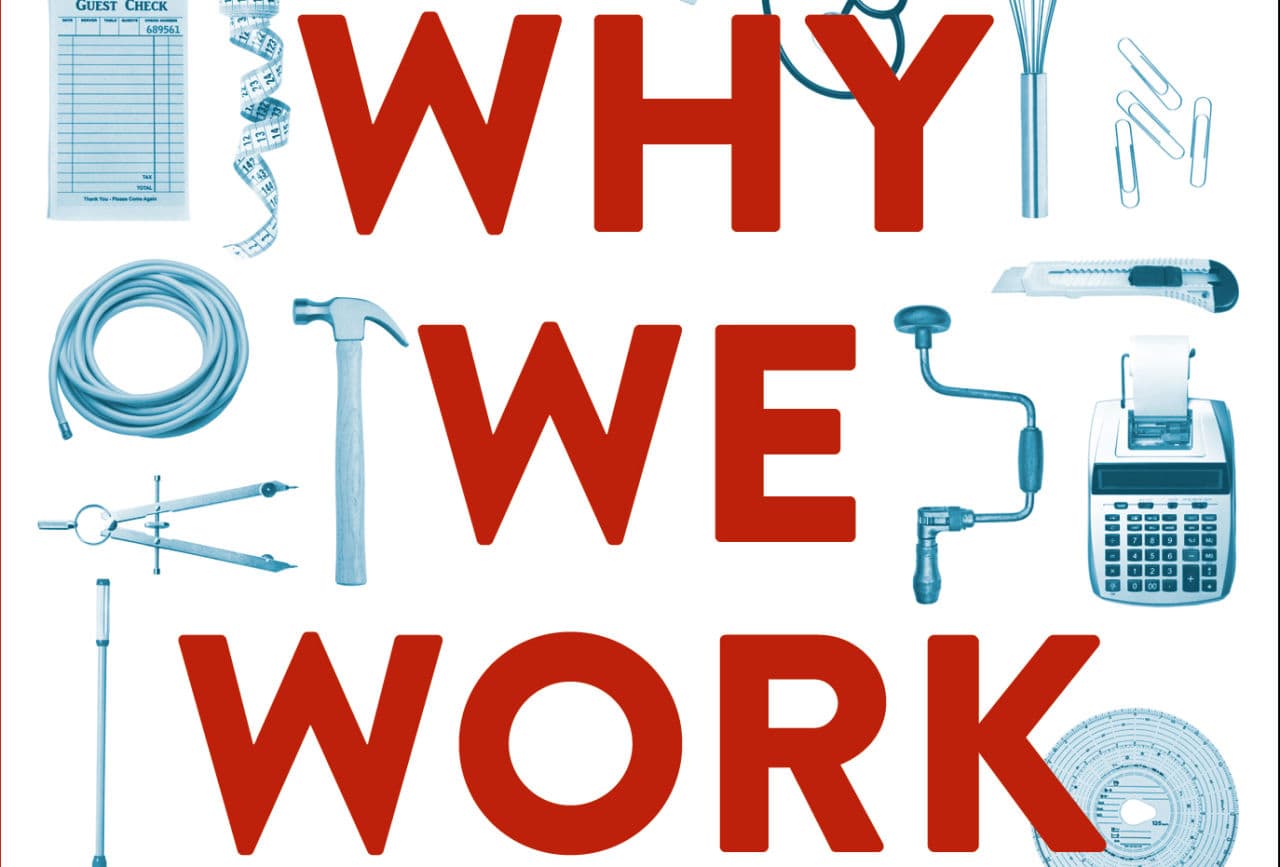Advertisement
Why Do We Work?
ResumeWith guest host Jane Clayson.
People want jobs, and then more. Fulfillment, challenges, meaningful work. Give that, studies show, and the bottom line grows.

We work to live, we live to work. Most of us lucky enough to have a job give most of our waking hours to our job. Why? Just for the paycheck? Our guest today says work for many of us is reduced to a paycheck, but what we yearn for is the right to work hard, to give to our job and our team and feel respect and self-respect. And, he says, study after study shows that workplaces that gives some elbow room and dignity are actually more profitable. “So let’s make all workplaces happier!” he says. It pays off. This hour, On Point, how to build a better workplace.
-- Jane Clayson
Guests
Barry Schwartz, professor of Social Theory and Social Action at Swarthmore College. His new book is called "Why We Work." (@BarrySch)
Michael Beer, professor emeritus at the Harvard Business School. He is also the co-founder and chairman of the Center for Higher Ambition Leadership and co-founder and director of the management consulting firm TruePoint.
Tom's Reading List
Huffington Post: Why We Work by Barry Schwartz - "The recent New York Times' story on employment at Amazon evoked a slew of visceral reactions, even one from Jeff Bezos himself. It turns out that everyone holds strong opinions about work. In hindsight, though, the Times' story and subsequent brouhaha was more about what we do at work--not why we do it. One could argue that the latter question is even more important than the first. Against this backdrop, Why We Work by Barry Schwartz arrives at a propitious time."
The Atlantic: Beyond the Paycheck - "In Schwartz’s ideal world, every worker would feel important and listened to, and would feel that they are doing meaningful work that betters the lives of others. But getting to that point would require a series of radical revisions to the way we think about work and consumption."
New York Times: Rethinking Work - "Today, in factories, offices and other workplaces, the details may be different but the overall situation is the same: Work is structured on the assumption that we do it only because we have to. The call center employee is monitored to ensure that he ends each call quickly. The office worker’s keystrokes are overseen to guarantee productivity."
Read An Excerpt From 'Why We Work' By Barry Schwartz
Watch Barry Schwartz's TED Talks
"How We Think About Work Is Broken" (March, 2014)
This program aired on September 7, 2015.